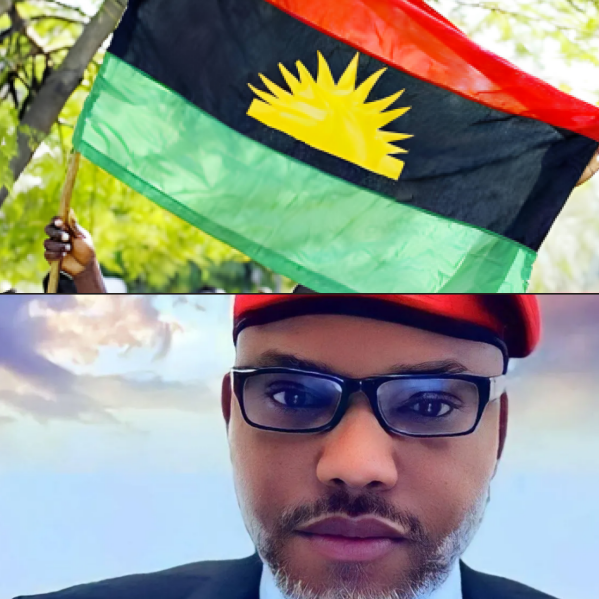
The Court of Appeal in Abuja has affirmed the proscription of the Indigenous People of Biafra (IPOB) and its designation as a terrorist organization, ruling that the federal government acted lawfully in banning the separatist group.
IPOB, led by Nnamdi Kanu, has been agitating for an independent Biafra, seeking to secede from Nigeria’s South-East and parts of the South-South.
In 2017, the administration of then-President Muhammadu Buhari proscribed the group, and a Federal High Court in Abuja formalized the proscription, labeling IPOB a terrorist organization.
- Boko Haram IED Explosion on Borno Road Kills Eight, Wounds Others
- EFCC Opens Probe of 24 Nigerian Young Men Detained in Ghana over Suspected Cybercrimes
- Former CBN Governor Emefiele Attempts To Regain Forfeited Abuja Estate; Court Dismisses the Attempt
- King Sunny Ade’s House Divided as Daughter Alleges he has Been Kidnapped; Other Family Members Deny Claim
- You Can Gather All Governors But If Nigerians Reject You, it is Over — El-Rufai Tells Tinubu
- Woman Leaves Husband after Falling in Love with ChatGPT
Since then, IPOB has persistently challenged its proscription in various courts. In October 2023, a State High Court in Enugu nullified the proscription, ruling that it violated the Nigerian Constitution and the African Charter on Human and Peoples’ Rights.
The court held that the actions of the federal government and the South-East Governors’ Forum in proscribing IPOB amounted to discrimination.
However, the Court of Appeal, in a unanimous decision delivered on Thursday by a three-member panel led by Justice Hamma Barka, upheld the 2017 proscription.
The appellate court ruled that the federal government had the legal authority to proscribe IPOB, citing national security concerns. The court found no reason to overturn the decision of the Federal High Court in Abuja and dismissed IPOB’s appeal for lacking merit.
This ruling means IPOB remains a proscribed organization in Nigeria. However, the group and its leader, Nnamdi Kanu, still have the option of challenging the decision at the Supreme Court.











